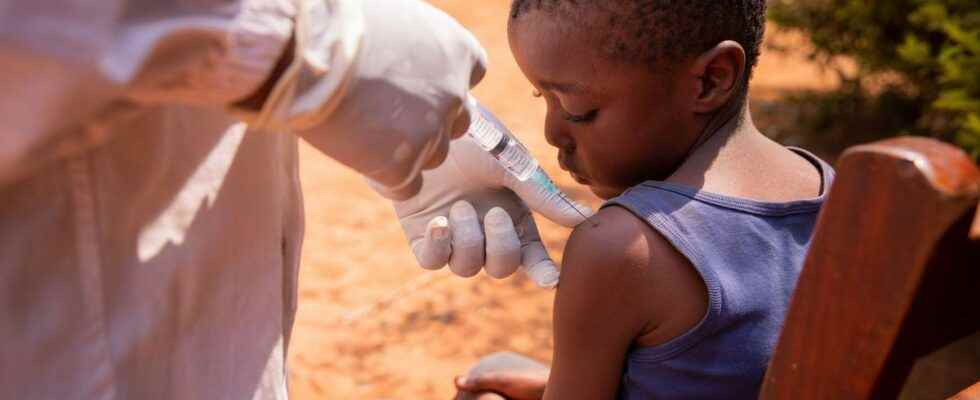Published on
Updated
Reading 2 mins.
A trial called Prevac tested 3 new Ebola vaccine regimens including adults and children. The feedback is very encouraging: the immune response of the participants would increase for up to 12 months. With the long-term hope of finally eradicating the viral disease?
The Ebola virus discovered in 1976 has since continued to reappear in the form of deadly epidemics contained for the time being in Africa and remains, as such, a subject of global public health. To eradicate the disease, the search for a vaccine (and in particular an appropriate vaccination schedule) is essential. In this context, an international consortium called Prevac, which includes scientists from Inserm and African institutions, published on December 14 the results of a large randomized clinical trial in West Africa. These confirm the safety of three different vaccine regimens tested from WHO prequalified vaccines.
Three validated vaccine regimens
According to Inserm, the objective was to assess both “the safety and tolerance of the various products administered”, or three vaccines against the Zaire Ebolavirus species (the vaccine rVSVΔG-ZEBOV-GPdeveloped by Merck, Sharpe & Dohme, Corp., and the vaccine strategy comprising vaccines Ad26.ZEBOV and MVA-BN-Filo of Johnson & Johnson).
Each was tested with different booster times to see how the organisms made their antibodies. 1400 adults and 1401 children participated in the trial:
- The first vaccine regimen tested consisted of injecting a dose of the vaccine ZEBOV followed 56 days later by a dose of MVA-BN-Filo;
- The second scheme consisted of injecting a dose of rVSVΔG-ZEBOV-GP;
- Finally the third scheme started with a dose of rVSVΔG-ZEBOV-GP followed 56 days later by a booster with the same vaccine.
A detectable immune response for up to 12 months
According to the results obtained by Prevac, the three vaccine regimens are safe and well tolerated in adults and children. Side effects appeared within seven days of vaccination, but the majority of participants reported mild symptoms (fever, muscle and joint pain, headaches, etc.), which disappeared within a few days.
Concerning the immune response, the three vaccination schedules all made it possible to observe a rapid increase, in 14 days, in the quantity of antibodies directed against the virus, with a peak between 1 and 3 months after the first vaccination. This amount of antibody remains detectable also up to 12 months after the first injection. The strongest immune response is found in children.
“The data collected during this clinical trial is valuable because it confirms the safety and potential efficacy of available vaccines, which will help refine vaccination recommendations during an Ebolavirus Zaire epidemic but also in period between epidemics, in populations at risk”, specified Yazdan Yazdanpanah, principal investigator of the trial, Inserm researcher and director of the ANRS.
Participants are now being followed for 5 years to assess their long-term safety and durability of the immune response.
